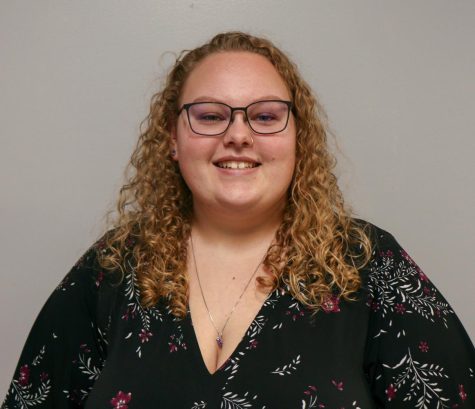ACT speaker highlights farmers’ importance
March 4, 2020
Agricultural Communicators of Tomorrow speaker Linda Emanuel, an RN, community health nurse and ag producer who works with the AgriSafe Network, talked to a group of students about “protecting the people who feed the world.”
AgriSafe is a national non-profit organization formed in 2003 by nurses in rural Iowa. Its mission is to “support the growing network of trained agricultural health and safety professional that assure access to preventative services for farm families and the agricultural community.” Emanuel said diversity is the best part of her job. “I really enjoy every week there is a whole new list of different tasks that I get to tackle and how I get to connect with producers,” she said.
Emanuel said farm workers are at high risk for fatal and nonfatal injuries everyday in their work. These injuries vary from work-related lung diseases, skin diseases, noise-induced hearing loss and certain cancers. Hazardous exposures include: dusts, pesticides and chemicals, gases, vapors, flying objects, noise, livestock, vehicles and equipment and machinery. Dust contaminants include organic bacteria, fungal spores and pesticide residues while gaseous hazards are anhydrous ammonia, hydrogen sulfide, and welding gases. Emanuel said noise is the most common health issue in farmworkers due to machinery, livestock, tools and other items.
The “Total Farmer Health Campaign” is designed based upon assessment of public health threats not currently being addressed. AgriSafe trained 300 rural primary care professionals in 2019. Those professionals were trained on integrating mental health services within primary care settings.
Emanuel said she was trained on suicideTALK. Total Farmer Health promotes healthy mind plus healthy body equals total farmer health.
According to AgriSafe through this campaign they will “train 300 rural health care professionals and 200 rural influencers to recognize potential signs and symptoms of stress, identify people who may be in need of mental health support, and connect them with resources for information and care.”
Emanuel said rural residents may not seek healthcare because of social stigma and privacy concerns, lack of financial means or affordable health insurance, lack of access to transportation or confidence in quality of care and health literacy.
Most counties in Nebraska have a shortage of health professionals according to the Rural Health Information Hub in 2019.
According to AgriSafe, farmers and ranchers experience “an increased incidence of respiratory diseases, zoonotic infections, skin cancer, musculoskeletal disorders, hearing loss, depression, anxiety, and death by suicide.”
According to the Rural Mental Health, “over half of the counties in the United States have no mental health professionals” and are estimated to take 20-25 percent of primary care physician’s workload.
Emanuel told the audience farmers and ranchers typically talk “shop” over coffee breaks and the older generation take healthcare advice for their friends first before even thinking about seeking professional help.
According to a 2017 chart correlating the number and rate of fatal work injuries by industry sector, agriculture, forestry, fishing and hunting have 882 fatal injuries or 15.1%. All of AgriSafe Network’s research comes from highly- educated and reliable sources such as the World Health Organization, USDA, NIOSH, OSHA, the U.S. Department of Public Health, extension services and agriculture centers. The sources also include peer reviews from MCN, AAOHN, Rural Health Information Hub, and journals such as Rural Health, Public Health and Ag Medicine.
Some services provided by AgriSafe include continuing education, monthly webinars, clinical resources and updates on the most cutting-edge developments in agriculture health and safety. Emanuel said AgriSafe will have a webinar about the continued infection of the COVID-19 with professional speaking on a panel.
Emanuel is part of the AgriSafe team along with Knesha Rose-Davison, a public health program director; Charlotte Halverson, clinical director; Stacey Jenkins, online learning director; Natalie Roy, executive director; Ansley Fey, program manager; and Gwen Parker, workforce training specialist.
“I like that I can still make a difference and I get to connect with people, and I feel like that this is an under-served population, farmers and ranchers are under-served,” Emanuel said. “No one understands quite all the nuances of their occupation. I feel like that is where I shine and where I get the most gratitude, most fulfillment.”





